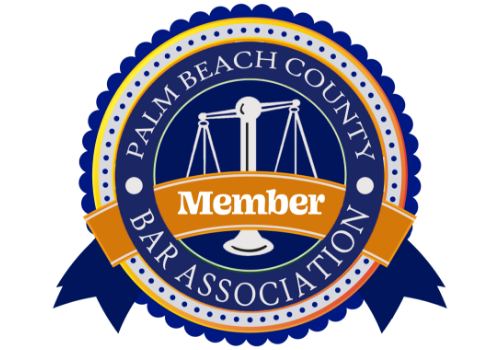
Law Blog
Key Guide: How to Prepare for a Business Legal Consultation

Ever stood at the foot of a mountain, looking up? That’s how it can feel when you’re preparing for a business legal consultation. Daunting, right?
In this guide, we’ll walk you through understanding your needs to researching potential attorneys and scheduling consultations. Plus tips on prepping questions and gathering necessary documents – all aimed at helping you make an informed decision.
By journey’s end, that daunting mountain will look more like a molehill. So let’s take that first step together…
Table Of Contents:
- Understand Your Business Needs
- Schedule a Consultation
- Prepare Questions for the Attorney
- Gather Necessary Documents
- Discuss Fees and Payment Options
- Make an Informed Decision
- FAQs in Relation to How to Prepare for a Business Legal Consulation
- How do I prepare for a case consultation?
- What 4 things should you consider when choosing the right business lawyer?
- Why all entrepreneurs should have a consultation with a business lawyer before opening a business?
- What one piece of legal advice did you find that would be most helpful in starting a new business?
Understand Your Business Needs
Understanding your business needs is the first step towards a successful legal consultation. This means you need to get clear about your company’s structure, operations, and goals.
To start off, take stock of how your business is structured. Is it a sole proprietorship? A corporation? An LLC?
The next thing you should do is have a grasp on the daily operations of your business. What are the wares or services provided? Who are your main clients or customers?
Finally, don’t forget about setting clear goals for what you want to achieve with this consultation. Are there any specific legal issues that need fixing? Or perhaps some future plans that require sound legal advice?
Using the questions posed previously as a basis, you can determine what legal counsel your business requires.
Schedule a Consultation
Booking an initial consultation with your potential attorney is like starting a business venture. Ensure you have the right partner for your venture.
This first gathering allows you to go over your necessities, pose significant inquiries, and assess if they are an ideal match for you. But before jumping in, make sure to understand what kind of lawyer your business requires. Pick a date that gives ample time for both parties to prepare adequately.
Prepare Questions for the Attorney
Much like preparing for a crucial exam, you need to get ready for your legal consultation. Why? Because asking the right questions can give you insight into an attorney’s expertise and approach.
Start by understanding what services they offer. The American Bar Association suggests some key inquiries such as:
- “What areas of law do you specialize in?”
- “Have you handled cases similar to mine before?”
- “Can I get references from past clients?”
This is not just about their credentials but also how they make sure that your needs are understood and met effectively.
In addition, ask about communication preferences – How often will we meet? What’s your chosen form of contact?
Remember: this isn’t an interrogation, it’s more like matchmaking. It helps both parties gauge if they’re a good fit for each other.
Gather Necessary Documents
Preparing for a business legal consultation means getting your ducks in a row. This includes collecting important paperwork like contracts, leases, or financial statements. But why?
Imagine walking into a doctor’s office without any medical history – it’d be tough to get the right diagnosis. Similarly, presenting your attorney with comprehensive documents gives them insight into your situation.
The American Bar Association emphasizes this point: thorough documentation helps lawyers understand your case better and provide more effective help.
You might need different types of documents depending on the issue at hand. For instance, if you’re dealing with an employment dispute, having copies of related emails could be beneficial.
So remember – gathering necessary documents isn’t just busywork; it’s vital preparation that allows attorneys to serve you best.
Discuss Fees and Payment Options
Talking about money can feel awkward, but it’s a crucial part of your legal consultation. To avoid any surprises later on, make sure to discuss fees and payment options upfront with the attorney.
You need to ask about their hourly rate, retainer fee if there is one, and how often you’ll be billed. Also, make sure to ascertain the scope of services included in these fees so you can be certain your money is being spent appropriately.
If budget is a constraint, feel free to express this and inquire about potential flexible payment plans or sliding scale fees. Some attorneys might offer flexible payment plans or work on a sliding scale basis depending upon your financial situation. According to the American Bar Association, many firms are now offering more client-friendly billing arrangements than ever before.
Make an Informed Decision
Making the right choice in legal representation for your business is crucial. Choose an experienced and knowledgeable legal representative to ensure a safe journey through the tumultuous waters of business.
You need to weigh up their experience and qualifications. Understanding what those fancy degrees mean, or how many years they’ve been practicing might be tricky but it’s essential.
Ask yourself: Do they meet my needs? Are they familiar with businesses like mine? The answers should guide your decision-making process. Remember, this isn’t just about hiring any attorney; it’s about finding YOUR business’s advocate.
FAQs in Relation to How to Prepare for a Business Legal Consulation
How do I prepare for a case consultation?
To prep, first understand your business needs. Then research potential attorneys and schedule a consultation. Have questions ready, gather needed documents, discuss fees and payment options.
What 4 things should you consider when choosing the right business lawyer?
You need to look at their expertise in your industry, reputation among clients and peers, clear fee structure they offer, and compatibility with your personality or working style.
Why all entrepreneurs should have a consultation with a business lawyer before opening a business?
A legal consult can help dodge future issues by ensuring contracts are solidly built; they give advice on entity formation decisions; they make sure compliance with local laws is maintained; overall reducing risks.
What one piece of legal advice did you find that would be most helpful in starting a new business?
The golden nugget is this: always separate personal assets from the company’s assets. This safeguards personal belongings if ever any lawsuit occurs against the firm.
Personalized guidance tailored to your business
For more information or to discuss your specific business needs and legal concerns, contact Attorney Derek Jorgensen. Take the first step towards safeguarding your business’s future and success.
The information provided in this article does not, and is not intended to, constitute legal advice; instead, all information, content, and materials available in this article are for general informational purposes only. Information in this article may not constitute the most up-to-date legal or other information. Readers should contact an attorney to obtain advice with respect to any particular legal matter. No reader, user, or browser of this article should act or refrain from acting on the basis of information in this article without first seeking legal advice from counsel in the relevant jurisdiction. Only your individual attorney can provide assurances that the information contained herein – and your interpretation of it – is applicable or appropriate to your particular situation.
The views expressed at, or through, this site are those of the author writing in their individual capacity only – not those of Scott-Harris as a whole. All liability with respect to actions taken or not taken based on the contents of this site are hereby expressly disclaimed. The content on this posting is provided “as is;” no representations are made that the content is error-free.
recent post


South Florida Closing Costs: What Buyers & Sellers Should Expect

Homeowners Associations (HOA) in Florida: Legal Rights and Obligations
recent post

HOA Foreclosure Sales in Florida: Understanding Risks, Liens, and Legal Considerations

South Florida Closing Costs: What Buyers & Sellers Should Expect









